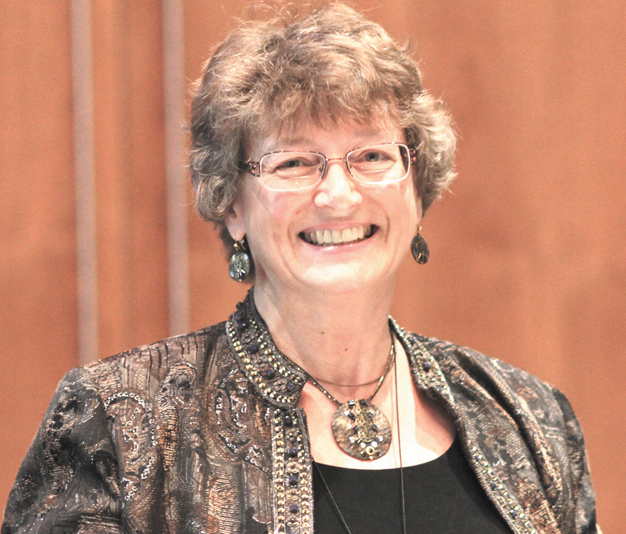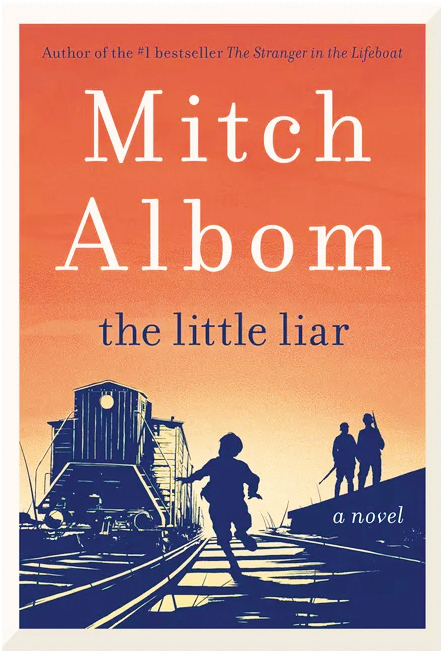Truth, white lie, or falsehood?

Judaism’s Worldview Series
Jewish Family Education with Candace R. Kwiatek, The Dayton Jewish Observer
Salonika, Greece, 1936. The people in Nico’s Jewish neighborhood called the little blond-haired blue-eyed boy Chioni, Greek for snow, because he never lied. He adored his grandfather, who once warned him about lies. “Sometimes, if you say a lie long enough, people believe it’s the truth,” he said. “Never be the one to tell lies, Nico.” “I won’t Nano,” he assured his grandfather.
Salonika, 1943. Separated from his family during a Nazi roundup, Nico was discovered by a German officer who soon recognized his usefulness. In exchange for a promise that his family could return home, Nico was to inform everyone arriving at the train station to keep calm, that they were going north where their families would be resettled together, with homes and jobs. Certain he was doing the right thing, Nico did what he was told. And Truth wept.
Truth must still be weeping. The daily news regularly posts stories that spotlight lies involving academia, corporations, elections, immigration, politicians, science, and other topics. Lying is increasing in daily life too, according to numerous studies.
At the same time, expanding euphemisms suggest growing ambiguity about the nature of truth and lies. Fact-checking for fake news, misinformation, and disinformation has become big business.
Most concerning are the newest terms gaining traction: my truth, truthiness, alternative facts, post-truth, even truth decay.
All reflect the declining role of objective facts, data, and analysis in defining what is truth or falsehood, in favor of ideological purposes, personal beliefs, opinions, emotions, and intuition.
In the Jewish worldview, falsehood isn’t celebrated. On the other hand, there is no biblical commandment, “Do not lie.”
Rather, the Bible categorically states, “Distance yourself from that which is false,” the only commandment phrased in such terms. The expression “distance yourself,” Rabbi Zalman Melamed explains, “implies that not only should one avoid outright and deliberate lies, one should distance (oneself) from any semblance of falsehood whatsoever,”including gestures or even silence that communicates a deceptive message.”
Conversely, “engaging with truth” means drawing nearer to God, who is identified with Truth. Rabbi Simcha Bunim of Peshischa taught, “It is customary for an author to place his name in the opening of his book. God placed His Name emet—Truth, in the opening chapter of the Torah.”
Its Hebrew letters—aleph, mem, taf—appear at the ends of the first three and last three words of the Creation narrative, like a divine signature.
“Emet thus envelops all of creation, a testimony to God as the Creator,” writes Rabbi Dr. Abraham Twerski.
So the rabbinic sages of the Talmud called emet, Truth, “the seal of God.”
Infusing our thoughts, speech, and actions with truthfulness is one way of fulfilling the mitzvah to emulate God.
While it places a high value on truthfulness, Jewish tradition is also realistic, Rabbi Louis Jacobs acknowledges. There are occasions when telling a “white lie” may be necessary.
“The Torah allows one to alter the truth for the immediate purpose of pursuing peace, fulfilling a mitzvah, praising a bride, and maintaining one’s humility and modesty,” adds Mordechai Lewis.
However, “(t)his leniency is only permitted where the falsehood does not affect anyone else adversely, there are no other means available, and one does not do it regularly.
Truth is clothed in speech (words that convey truth), actions (behaviors that manifest “walking in God’s ways”), and thought (reflection that leads to integrity between what you think and what you do).
Bidding strategy. Rav Safra had a certain article to sell. When a buyer approached him and offered a suitable price, he mentally agreed to accept the offer. But, engaged in prayer at the moment, the Rav didn’t immediately answer. Thinking the rabbi had rejected his bid, the prospective buyer kept on increasing the price. After completing his prayers, the Rav said to him, “Take the article for the sum you originally stipulated. I had intended to give it to you for that sum, but I was unable to interrupt my prayers.”
Chicken leg. The legendary trickster Hershel of Ostropol was hired as a cook by a wealthy nobleman. His first task was roast goose, which he accomplished easily.
But, tempted by the delicious aroma, he ate one of the legs before serving. When the nobleman demanded an explanation, Hershel responded, “Sire, is it possible, could it be, that this goose had only one leg?”
“Impossible,” growled the angry nobleman. “Please sire,” said Hershel. “Allow me one day to clear my name.”
The nobleman gave a sharp nod. The next day, Hershel invited the nobleman to go hunting. When they spotted a stork standing on one leg by the riverbed, Hershel grinned, “See?” The nobleman immediately clapped his hands and shouted, and the stork flew off with its two legs outstretched.
“Like that bird, my goose had two legs,” the nobleman complained. “What do you have to say now?”
Hershel calmly replied, “Well, if you’d clapped your hands and shouted at the roast goose, you would have seen its other leg, too!”
Truth sparks. As God prepared to create humans, He invited the angels to share their thoughts. The angels of Kindness and Righteousness said, “Let humans be created, for they perform acts of loving-kindness and establish justice.”
The angels of Truth and Peace said, “Let humans not be created, for they are filled with lies and discord. So, God cast Truth down to earth.”
The angels gasped: “Master of the universe, why are You demeaning Your very seal? Let Truth ascend from the earth.”
The great Kabalist Rabbi Yitzhak Luria explained that “when truth is thrown to the ground, it shatters into shards which are scattered throughout the world. These are sparks of truth, embedded in each and every human being. Each person’s role is to collect these sparks of truth and connect them, until the entire truth arises from the earth.”
Literature to share
Anya and the Dragon by Sofiya Pasternack. Set in 10th century Eastern Europe, this vivid fantasy for middle schoolers is the story of Anya’s quest to rescue a dragon and save her family. It’s fast-paced, light-hearted, and filled with likable characters and intriguing Russian and Jewish traditions.
The Little Liar by Mitch Albom. Salonika, Greece, the European city with the largest percentage of Jews before the Nazis arrived. Nico Krispis, 11, never lies. A German officer, Udo, uses him because of it. His classmate, Fanny, loves him for it. His older brother, Sebastian, resents him on all counts. And the voice of Truth narrates their story. A brilliant, thought-provoking tale about truth, love, and what it means to forgive and be forgiven. Impossible to put down.
To read the complete March 2024 Dayton Jewish Observer, click here.



